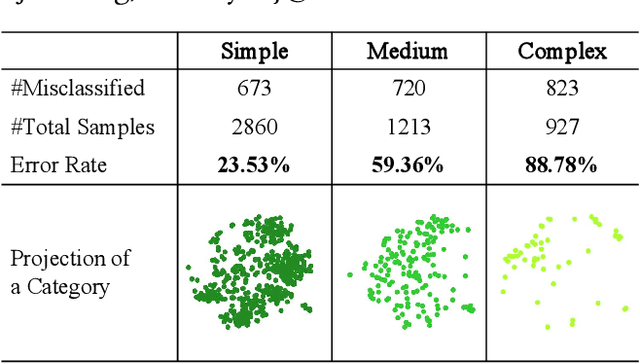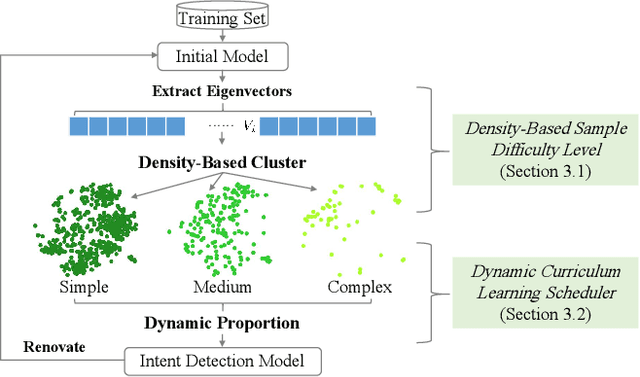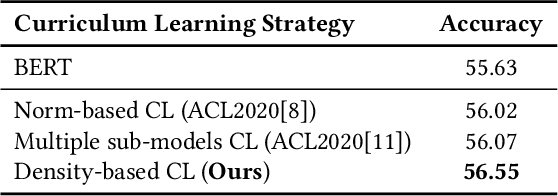Density-Based Dynamic Curriculum Learning for Intent Detection
Paper and Code
Aug 24, 2021



Pre-trained language models have achieved noticeable performance on the intent detection task. However, due to assigning an identical weight to each sample, they suffer from the overfitting of simple samples and the failure to learn complex samples well. To handle this problem, we propose a density-based dynamic curriculum learning model. Our model defines the sample's difficulty level according to their eigenvectors' density. In this way, we exploit the overall distribution of all samples' eigenvectors simultaneously. Then we apply a dynamic curriculum learning strategy, which pays distinct attention to samples of various difficulty levels and alters the proportion of samples during the training process. Through the above operation, simple samples are well-trained, and complex samples are enhanced. Experiments on three open datasets verify that the proposed density-based algorithm can distinguish simple and complex samples significantly. Besides, our model obtains obvious improvement over the strong baselines.
 Add to Chrome
Add to Chrome Add to Firefox
Add to Firefox Add to Edge
Add to Edge